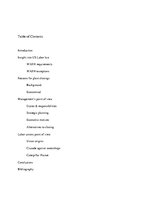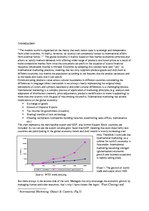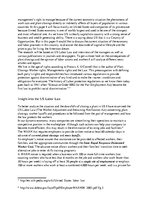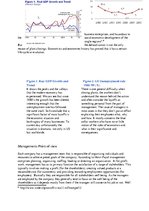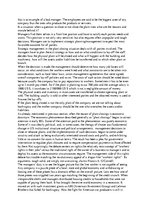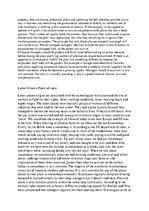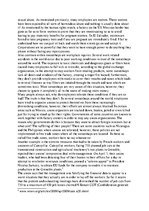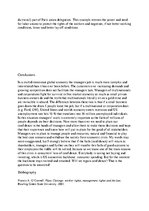| Nr. | Sadaļas nosaukums | Lpp. |
| Introduction | ||
| Insight into US Labor law | ||
| WARN requirements | ||
| WARN exceptions | ||
| Reasons for plant closings | ||
| Background | ||
| Economical | ||
| Management’s point of view | ||
| Duties & responsibilities | ||
| Strategic planning | ||
| Economic motives | ||
| Alternatives to closing | ||
| Labor unions point of view | ||
| Union origins | ||
| Crusade against sweatshops | ||
| Caterpillar France | ||
| Conclusions | ||
| Bibliography |
‘’The modern world is organized on the theory that each nation state is sovereign and independent from other countries. In reality, however, no country can completely isolate its international affairs from external forces.’’1 The global economy is mainly based on free market economies principle and allows to satisfy markets demands with offering wider range of products and lower prices as a result of more competitive market from what the consumers can profit in the situation of scarce financial resources (disposable income is limited). Countries by adapting this concept have said ‘’yes’’ to international marketing practices, meaning that not only suppliers produce goods and ship them to different countries, but market the population according to the features that the product possesses and to the needs and wants that it can satisfy.
Communicating products value across cultural boundaries in different countries considering the differences in language (direct translation is not always clearly representing the original idea), perceptions of colors and symbols (aesthetics) and other cultural differences is a challenging process.
International marketing is a complex process of application of marketing principles (e.g. analysis and adaptation of distribution channels, price adjustments, products modification to make it appealing) to more than one country with the goal of maximizing the profits. International marketing has several implications on the global economy:
Exchange of goods
Growth of Imports/ Exports
Tax income for government (customs)
Sharing/ transfer of new technology
Creating workplaces (companies building factories, establishing sales offices, maintenance etc.).…
Darba apjoms 10 lapaspuses, iztirzaa darba aizsardziibu ASV. Mineeti, piemeeri, citeejumi, tabulas. Darbaa iesaistiiti piemeeri no shii gada aviizeem par notikumiem un reakcijaam sakaraa ar razotnju sleegshanaam. Laba kvalitaate, vairaak kaa 10 atsauces.


